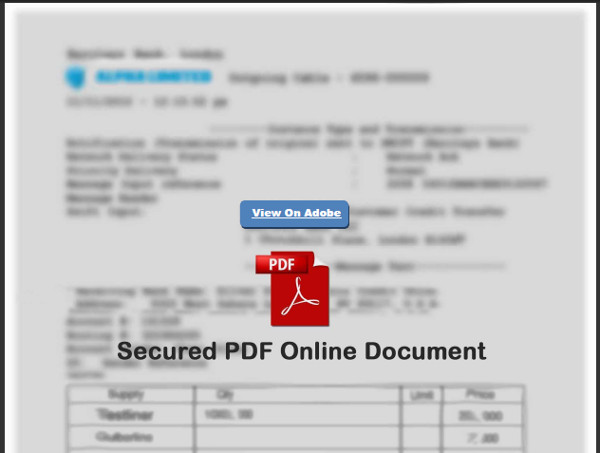PDF_MALPHISH.GTLZ
PDF/Trojan.ZBLB-4 (Cyren); PDF/Phishing.A.Gen (ESET-NOD32); Trojan.PDF.Phishing (Ikarus)
Windows


Threat Type: Trojan
Destructiveness: No
Encrypted: No
In the wild: Yes
OVERVIEW
This Trojan arrives as an attachment to email messages spammed by other malware/grayware or malicious users.
TECHNICAL DETAILS
Arrival Details
This Trojan arrives as an attachment to email messages spammed by other malware/grayware or malicious users.
NOTES:
Upon execution of the file, the user is presented with a fake message tricking them to click on the following malicious link:
- http://{BLOCKED}3.{BLOCKED}no.ru/ni/pdf

However, as of this writing, the said site is inaccessible.
SOLUTION
Step 1
Before doing any scans, Windows XP, Windows Vista, and Windows 7 users must disable System Restore to allow full scanning of their computers.
Step 2
Close all opened browser windows
Step 3
Scan your computer with your Trend Micro product to delete files detected as PDF_MALPHISH.GTLZ. If the detected files have already been cleaned, deleted, or quarantined by your Trend Micro product, no further step is required. You may opt to simply delete the quarantined files. Please check this Knowledge Base page for more information.
Did this description help? Tell us how we did.

